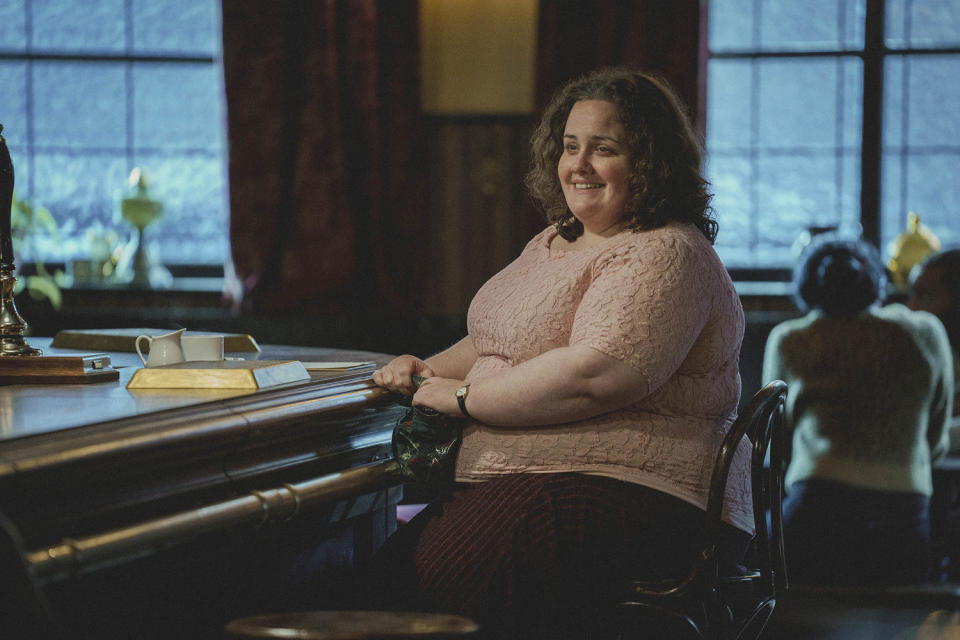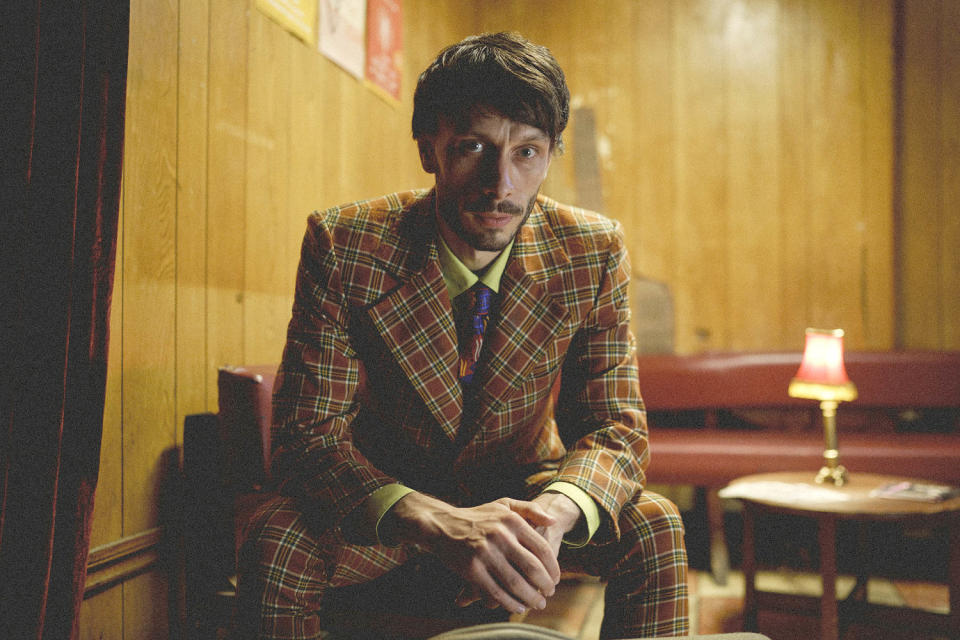'Baby Reindeer' is based on a true story. What the star has said about his stalker
Netflix's harrowing new hit, "Baby Reindeer," is based on a real story.
Since premiering on April 11, "Baby Reindeer" has climbed its way up to the number one TV show spot on the streaming service. The reality-meets-fiction story has also left viewers reeling.
Debating whether or not to watch the show? Here's everything you need to know.
What is the show 'Baby Reindeer' about?
"Baby Reindeer" tells the story of a struggling comedian whose "act of kindness to a vulnerable woman" ushers in "a suffocating obsession which threatens to wreck both their lives," per the streamer.
A preview for the series opens with the comedian, Donny Dunn (Richard Gadd) referencing his stalker, Martha (Jessica Gunning), who calls him her "baby reindeer."
“I really don’t know where it’s gonna end. I think one of us is gonna have to die now,” he says and a maniacal laugh emerges from the audience. It's implied the laugh is from his his stalker.
Donny goes to the police to report Martha after six months of her showing up to his work and house and emailing him constantly. However, the police don't seem to take his concerns seriously.
Martha's advances continue and she says, "Shall we run away together?" in one scene.
Martha and Donny meet at a restaurant in one scene and Donny asks her to let go of his hand. An outburst ensues.
"Don't you dare!" she screams.

Martha keeps popping up everywhere and causes tension in Donny's relationships, especially one with a romantic interest named Teri (Nava Mau).
"I think you love it," she says to Donny, referring to the attention Martha gives him.
At a comedy show, Donny introduces the audience to Martha, calling her his "stalker,"
"Don't you say that to me!" she exclaims and slams her fist on the table. "Apologize to me right now."
At the end of the trailer, Donny and Martha stand outside in the dark and she pokes his stomach after saying, "I have a sneaky feeling you might be the death of me."
Is 'Baby Reindeer' based on a true story?
“It’s a true story,” Gadd told Netflix. “In a weird way, I first started feeling like this could be a good story during the whole ordeal itself. It was one of the most intense periods, when I was listening to these voicemails. I’d go to sleep at night and these voicemails — her words would bounce around my eyelids. I remember thinking, ‘God, if I was ever to speak about this onstage, I’d fire the words around. Put the voicemails in a big cacophony and fire it.’"

After performing a play about his experience at the 2019 Edinburgh Fringe Festival, Netflix approached Gadd to create a TV series. Before diving into the project, Gadd had a few ideas on how to approach it delicately.
“Stalking on television tends to be very sexed-up. It has a mystique. It’s somebody in a dark alley way. It’s somebody who’s really sexy, who’s very normal, but then they go strange bit by bit,” he said. “But stalking is a mental illness. I really wanted to show the layers of stalking with a human quality I hadn’t seen on television before. It’s a stalker story turned on its head. It takes a trope and turns it on its head.”

During a new interview with "This Morning," Gadd explained the extent of his stalking experience.
“It got pretty bad. It got pretty relentless. At one stage, it was like an assault on all senses, across all media: email, phones, everything. It felt like a barrage, a constant sort of 24/7 issue,” he said.
The star said that he played a role in encouraging his stalker.
“I was in a bad place. I made stupid errors. I sort of felt like I needed someone to give me attention in a way cause my confidence was rock bottom,” he said.
During the same interview, Gadd said he experienced a "catharsis" by writing about his experiences and said "it's been the best therapy."
When people watch the show, Gadd said he hopes they realize it's not a victim story.
"I wanted to show the nuances of the human condition, really. I wanted to show that people are a mixture of good and bad and I think stalker stories usually tend to be one person is good, one person is bad. And I wanted to kind of get away from that," he said.

During an interview with GQ, Gadd described the show as "pretty truthful" compared to his personal experiences.
"Any time it veered too much into embellishment I would always want to pull it back. It’s extremely emotionally truthful. Of course, this is a medium where structure is so important, you need to change things to protect people… but I like to think, artistically, that it never moved too far from the truth," he said.
When asked what his stalker might think of the series if she watched it, he offered the following response.
"I honestly couldn’t speak as to whether she would watch it. Her reactions to things varied so much that I almost couldn’t predict how she’d react to anything. She was quite an idiosyncratic person. We’ve gone to such great lengths to disguise her to the point that I don’t think she would recognize herself. What’s been borrowed is an emotional truth, not a fact-by-fact profile of someone," he said.
What happened to Martha, Gadd's real stalker?
Gadd changed his stalker's name and appearance for "Baby Reindeer."
However, he has spoken about pressing charges against the real person. While talking with GQ, he described the process.
"I do think the institution needs improvement, especially around stalking. I can think of numerous examples where people have complained to the police about a stalker but because maybe they’ve had a previous relationship the police haven’t taken it seriously. They can look for a concrete reason to arrest … but sometimes situations are more nuanced than that," he said.
He offered tips for making the process more seamless for victims.
"The first thing the police should do is try to preserve the safety of the person who is making the report rather than going through a long, arduous process to work out whether they should believe them or not," he said.
An article from The Times says Gadd's stalker didn't spend time in jail for her actions toward him. Gadd told The Times that he “didn’t want to throw someone who was that level of mentally unwell in prison” and said the whole saga was “resolved," per Forbes.
This article was originally published on TODAY.com
